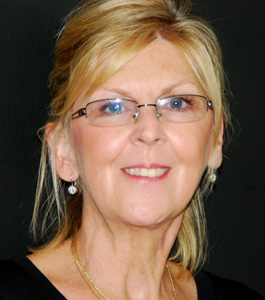Kay's Cooking Corner
June 3-9, 2013
Don and I are in the “let’s get healthy” mode. I know some of you are well into your spring workouts, and going great guns, but it has taken us a little longer. We are just now getting there. So I’ve been reading, he’s been reading – that’s a start, right?
All joking aside, we have re-vamped our exercise and eating habits and have been walking more routinely. One of the articles I was reading this morning was about different ways to eat more fruits and veggies – this is also something we are
working on, and as I have said in the past, can be a tricky situation with Don!
First, they give a breakdown of exactly how much you should be eating according to your age and according to the CDC. For people over 50, women should be eating two cups of veggies a day and men 2.5 cups per day. For fruits, women should be getting 2 cups and men 1.5 cups.
For those of you who have not yet reached 50, women should be getting 2.5 cups of veggies and 1.5 cups of fruits. Men: up to fifty years old should be eating 3 cups of vegetables and 2 cups of fruit. Daily.
Put in this way of measuring, it is a whole lot easier than trying to figure out if you have had one serving or two, right? However, if you’re very active, then you need more than what these portions provide. But that can be simple too. Don and I have started drinking a V8 Juice drink with one of our meals, or one of the V8 Splash drinks sometime during the day. Those are really tasty, and it is a good way for him to get some good things for him without him having to suffer or hide veggies under his potatoes!
Regardless, if you start your day with an 8-ounce glass of fruit juice at home that is already one full cup of your daily fruit requirement. One piece of whole fruit, like an apple, banana, or pear, counts as one cup, too. These are perfect for mid-morning or mid-afternoon snacks, and they keep your blood sugar from getting low.
As for your daily requirement of vegetables, if you are already eating a cup of vegetables with dinner, it might only take adding a salad to put you over the recommended amount.
Here are a few tips to help you with your snacking too – one of my (and Don’s) downfalls!
• Increase your dairy and fiber by mixing a 6-ounce container of plain, non-fat, Greek-style yogurt with 1/2 cup of berries and 1 tablespoon of ground flaxseed.
• Dip cucumbers, radishes, and grape tomatoes in hummus.
• Spread peanut butter on a celery stick and then sprinkle with raisins or dried cranberries.
• Carry a bag of toasted almonds in your pocket to give you a quick boost that is loaded with protein, healthy fat, and fiber.
• Salsa is a great vegetable snack. One-half cup of salsa equals one vegetable serving. For a tasty salsa dipper, try whole-grain crackers - much better for you than chips.
The Salsa makes me think of an incident a month or so ago. We were on a trip with some family and friends, and one young lady went to the buffet area and poured a cup of salsa and drank it. Just drank it. She said she does it all the time. Ok, not so bad since it can be a serving of veggies, but it is strange to see.
Now for a really good salad recipe that will get you a serving of vegetables, some fruit and some of your nuts/grains servings, all in one tasty dish! This one is easy to carry to work also.
Peachy Arugula Salad
1/4 cup pecans, toasted
Kosher salt and freshly ground black pepper, to taste
4 ounces soft cheese, crumbled
4 ounces Arugula lettuce
1 tablespoon extra virgin olive
1 medium lemon
4 medium peaches, peeled and sliced
4 tablespoon honey
Place arugula in medium bowl. Add oil, lemon zest and lemon juice from the lemon, and toss to coat; season with salt and pepper.
Divide the salad among 4 shallow bowls. Divide peaches among each portion of greens, top each half with cheese and pecans, then drizzle each salad with one tablespoon of honey.



